Seeing the Benefits: Omega-3s Improve Vision in Eye Diseases

Key Takeaways
Omega-3s for vision improvement:- Eye Health: Omega-3 fatty acids, especially EPA and DHA, are beneficial for eye diseases and vision.
- Conditions Addressed: Effective against age-related macular degeneration and dry eye disease.
- Recommended Dosage: Varies; consult health guidelines or a professional for optimal intake.
Article by Arnie Gitomer Mar 6, 2023
Omega-3 fatty acids are often considered healthy fats due to their benefits for heart health. However, these essential fatty acids can also improve vision and promote eye health.What are Omega-3 Fatty Acids?
Omega-6 and Omega-3 fatty acids are the two major classes of polyunsaturated fatty acids. They are different from saturated and monounsaturated fatty acids, which are considered unhealthy fats because they have two or more double bonds between carbons within the fatty acid chain.There are several different Omega-3s, but most scientific research focuses on three types:
- Eicosapentaenoic acid (EPA)
- Docosahexaenoic acid (DHA)
- Alpha-linolenic acid (ALA)
ALA and linolenic acid are essential fatty acids that must be obtained through diet. ALA can be converted into EPA and then DHA, but this conversion occurs in the liver and is very limited. Therefore, many people take fish oil or fatty acid supplements to ensure proper Omega-3 intake.
As components of the phospholipids that form structures of the cell membrane, Omega-3s are vital. DHA is especially important for the retina, brain, and sperm. In addition to this role, Omega-3s provide energy for the body and are used to produce eicosanoids. Eicosanoids are signaling molecules for the body’s functions, including the function of the cardiovascular, pulmonary, immune, and endocrine systems.
There are a variety of conditions in which Omega-3 fatty acids can improve, including:
- Cardiovascular disease and risk factors
- Infant health and neurodevelopment
- Dementia, Alzheimer’s disease, and age-related cognitive decline
- Rheumatoid arthritis
- Mental health conditions
- Symptoms of ADHD
- Metabolic syndromes
But in addition to these health benefits, Omega-3s may be taken for vision and ocular health.
How Do Omega-3 Fatty Acids Contribute to Eye Health?
While much of the research focuses on heart health, Omega-3s are proven to help with vision and several eye diseases, including age-related macular degeneration (AMD) and dry eye disease.Age-Related Macular Degeneration (AMD): AMD is one of the primary causes of vision loss in older individuals. Advanced AMD leads to severe vision loss. But because DHA is a structural lipid in retinal cellular membranes, this Omega-3 fatty acid can reduce retinal inflammation, neovascularization, and cell survival. In addition, this supplement can have cytoprotective effects on the retina to prevent the development or progression of AMD. Individuals who consume higher amounts of fatty fish or Omega-3 supplements have up to a 53% lower risk of neovascular AMD than those who consume less Omega-3 fatty acids.
Dry Eye Disease: Dry eye disease is a chronic condition in which decreased eye fluid leads to ocular surface inflammation and damage. This condition causes dry eyes, which can be uncomfortable and result in visual impairment. Patients consuming higher levels of dietary Omega-3s have a 17% lower risk of dry eye syndrome than others.
Cataracts: A recent study suggests that in addition to other benefits that Omega-3s have for vision, they may also decrease the risk of a nuclear cataract, which could help patients suffering from cataracts avoid cataract surgery. Eye surgery can be very painful and difficult to recover from; therefore, adding Omega-3 supplements to one’s diet may be considered a best practice to promote eye care.
What is the Recommended Dosage for Omega-3 Fatty Acids?
Omega-3s are present in many dietary supplements, including fish oil, krill oil, cod liver oil, and algal oil vegetable products. However, the dosage often varies widely, which can impact the extent of health benefits you can expect after adding supplements to your diet.The American Heart Association (AHA) recommends one to two servings of seafood per week to reduce the risk of congestive heart failure, coronary heart disease, ischemic stroke, and sudden cardiac death. And while it is preferable to get sufficient Omega-3s by adopting a dietary intake, this may not be possible for some individuals who require supplementation.
While there are no official guidelines for the intake of Omega-3s for vision, most organizations recommend 1.6 grams per day for men and 1 gram per day for women of alpha-linolenic acid. EPA and DHA intake should be a minimum of 250 milligrams per day, without exceeding 5,000 milligrams daily.
If you are considering supplementation for Omega-3s, many optometrists recommend looking for a supplement with additional nutrients that support eye health, including:
- Vitamin A: This nutrient is used by the retina in the first parts of the visual pathway and keeps your eye lubricated.
- Vitamin C: Prevents damage due to free radicals and unstable molecules, which can lead to the progression of macular degeneration and cataracts.
- Carotenoids: Lutein and zeaxanthin are two carotenoids that accumulate and guard the eyes against oxidative stress, including eye strain due to screen exposure.
- Astaxanthin: This supplement can help with diabetic retinopathy, macular degeneration, eye strain, fatigue, and improve sight.
 |
Read more about Arnie Gitomer |
Product Search Results
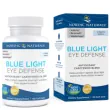
|
Blue Light Eye Defense softgel | Nordic Naturals | Login for Price | 70540 |
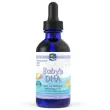
|
Dha Babys liq | Nordic Naturals | Login for Price | 58426 |
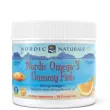
|
Nordic Omega 3 Gummy Fish | Nordic Naturals | Login for Price | 57752 |
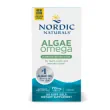
|
Omega Algae Vegetarian | Nordic Naturals | Login for Price | 61740 |
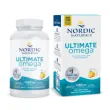
|
Omega Ultimate | Nordic Naturals | Login for Price | 50093 |
